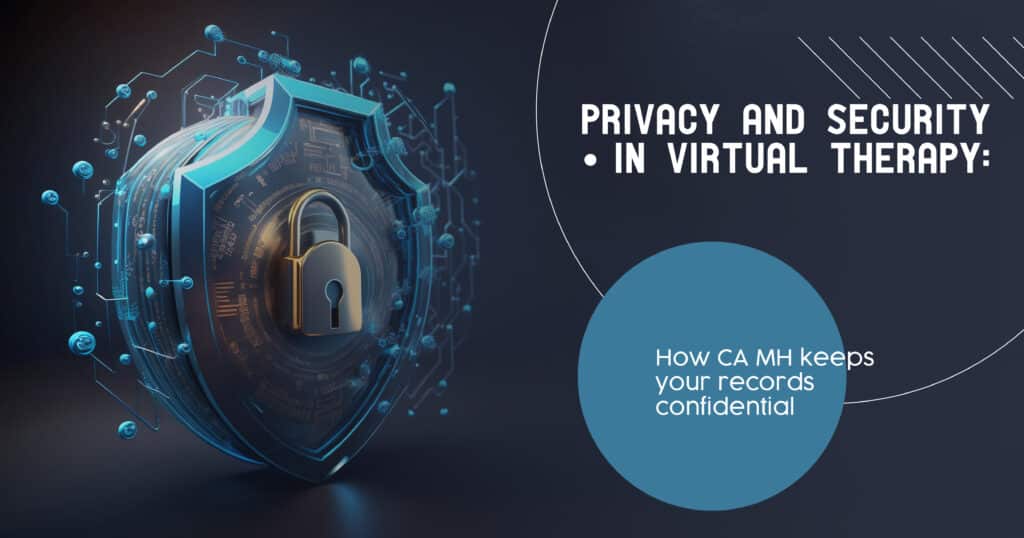
Virtual therapy, also known as online therapy or teletherapy, has revolutionized the way individuals seek professional help for emotional well-being. With the advent of technology, therapy sessions can now be conducted over video or audio calls, providing individuals with greater access to therapists and eliminating geographical barriers. However, as the world increasingly turns towards digital mediums for therapy, concerns regarding privacy remain paramount.
The secure exchange of personal information is a fundamental component of any therapeutic relationship. By understanding and valuing the importance of privacy in virtual therapy, individuals can confidently embrace the digital realm while ensuring their emotional well-being remains safeguarded.
The Growing Demand for Virtual Therapy
As the world becomes more interconnected, the demand for virtual therapy continues to grow. Some of the key reasons driving this uptake include:
- Accessibility: Virtual therapy eliminates geographical limitations, allowing individuals to seek therapy from the comfort of their own homes without the need for travel.
- Convenience: Online therapy offers flexible scheduling options, accommodating busy lifestyles and reducing appointment conflicts.
- Anonymity: For some, the digital platform provides a sense of anonymity, making it easier to open up and share personal experiences.
- Reduced Stigma: The anonymity of virtual therapy can help diminish the perceived stigma attached to seeking psychological support.
- Cost-Effective: Virtual therapy often proves more cost-effective, as it eliminates transportation expenses typically associated with in-person appointments.
Ensuring Privacy in Virtual Therapy
Maintaining privacy during virtual therapy is crucial to creating a secure and trusting environment. Here are some essential considerations for both therapists and clients:
- Secure Communication Platforms: Therapists must utilize encrypted and HIPAA-compliant platforms to ensure the confidentiality of client information. Researching and choosing reputable communication tools is of utmost importance.
- Strong Authentication: Therapists should adopt multi-factor authentication to verify the identity of clients, ensuring that only authorized individuals have access to therapy sessions.
- Confidentiality Agreements: Both therapists and clients should sign confidentiality agreements that outline the responsibilities of each party regarding the disclosure and protection of personal information.
- Secure Wi-Fi Connection: Clients should connect to therapy sessions using a secure network to prevent unauthorized access, opting for private Wi-Fi networks rather than public hotspots.
- Privacy Shields: Therapists must conduct sessions in a private space, free from distractions or the possibility of being overheard, while clients should ensure they are in an environment that offers privacy and confidentiality.
- Informed Consent: Clients must provide informed consent that acknowledges the limitations of privacy in the digital realm while giving them the opportunity to ask questions and voice any concerns.
California Mental Health
The Benefits of Privacy in Virtual Therapy
Prioritizing privacy in virtual therapy offers numerous benefits to both therapists and clients.
- Trust and Confidentiality: Privacy fosters trust between therapists and clients, encouraging open and honest communication. Clients feel comfortable sharing their deepest fears and thoughts, knowing that their information remains confidential.
- Emotional Safety: By ensuring privacy, clients can express their emotions freely, releasing any anxieties about their personal information being compromised or misused.
- Accessibility to Vulnerable Groups: Privacy in virtual therapy helps break down barriers faced by individuals who may be physically or emotionally unable to attend in-person sessions. This includes those with disabilities or those residing in remote locations.
- Global Reach: Virtual therapy allows individuals to connect with therapists around the world, providing access to a wider range of expertise and perspectives.
Concerns Surrounding Privacy in Virtual Therapy
Though virtual therapy offers numerous advantages, concerns about privacy exist. Some common concerns include:
- Data Security: The security of client data is a crucial aspect of privacy. Ensuring that therapists adhere to strict data protection regulations is essential for maintaining client trust.
- Hacking and Unauthorized Access: The possibility of hackers intercepting therapy sessions is a significant concern. Both therapists and clients must employ preventive measures to reduce the likelihood of data breaches.
- Recording and Storage: Clients may worry about session recordings and how they are stored. Establishing clear guidelines regarding recordings and storage is essential to address these concerns.
California Mental Health
Best Practices for Privacy in Virtual Therapy
To ensure the utmost privacy in virtual therapy, therapists and clients should follow these best practices:
- Consent and Education: Therapists should inform clients about the importance of privacy and educate them on the measures in place to safeguard their personal information.
- Regular Auditing: Conducting periodic audits of the security measures in use, including communication platforms and data storage systems, helps identify vulnerabilities and ensures adherence to data protection regulations.
- Ongoing Training: Therapists should receive regular training on data protection, privacy practices, and emerging threats to stay up to date with the latest security protocols.
- Transparent Communication: It is essential to maintain open lines of communication between therapists and clients, allowing clients to voice concerns, ask questions, and receive clarification on privacy-related matters.
FAQs
Is virtual therapy as effective as in-person therapy?
Yes, virtual therapy has been proven to be just as effective as in-person therapy for many individuals. Numerous studies have shown positive outcomes and high levels of client satisfaction with online therapy.
How can I ensure my privacy during virtual therapy sessions?
To ensure privacy during virtual therapy, choose a reputable therapist who uses secure communication platforms, sign confidentiality agreements, utilize a secure Wi-Fi connection, and have sessions in a private, confidential setting.
Are there any legal measures protecting privacy in virtual therapy?
Each country may have different laws and regulations governing privacy in virtual therapy. However, many therapists adhere to the Health Insurance Portability and Accountability Act (HIPAA) compliance standards, which are designed to protect client information.
In conclusion, privacy is vital in virtual therapy as it establishes trust, maintains confidentiality, and nurtures emotional well-being in the digital world. By prioritizing privacy, individuals can confidently seek and receive therapy online, ensuring that their personal information remains secure while embracing the myriad benefits of virtual therapy. Remember, your mental health and emotional well-being deserve the utmost protection and care, both in-person and in the virtual realm.
Our goal at California Mental Health is to help people who are experiencing mental health problems by offering them dependable virtual mental health care. By fostering a welcoming and judgment-free environment, we hope to lower the barriers to seeking assistance.







